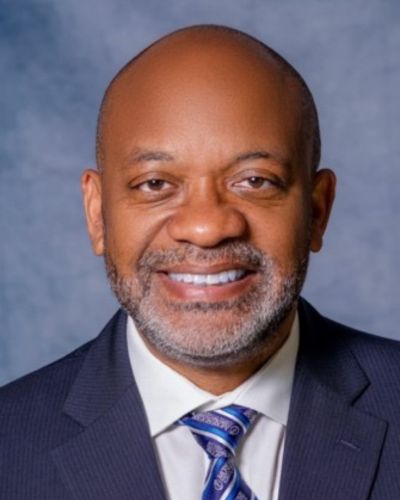Opinion: From Diagnosis to Denial: Breaking Chains of Lung Cancer Inequity
In an opinion piece for the Atlanta Journal-Constitution, MSM Senior Associate Dean for Research and Innovation Dr. James W. Lillard Jr. discusses how Black patients are underrepresented in lung cancer research.
 James W. Lillard Jr., PhD, MBA
James W. Lillard Jr., PhD, MBA
Senior Associate Dean for Research and Innovation at Morehouse School of Medicine
By Dr. James Lillard for the Atlanta Journal-Constitution
For people with lung cancer, life can be hard. But for Black men, limited access to the best cancer care, which includes participation in studies of breakthrough medical interventions, makes it even harder. Consider the experiences of this patient, who we will call John:
John’s cough started subtly, a nagging rasp that grew progressively worse. At 56, he was the picture of health and a pillar of his community. This diagnosis hit him like a ton of bricks: Stage 4 lung cancer. John, a Black man, knew the odds were stacked against him. Yet, another cruel twist emerged: John struggled to gain access to the latest treatments and clinical trials, particularly targeted therapies that could extend and improve his quality of life compared to standard chemotherapy.
Lung cancer disproportionately affects Black men, who are about 12% more likely to develop the disease than white men. And yet, a 2021 study found that the numbers of Black patients participating in studies of genetically targeted lung cancer therapies lag behind the numbers that would be appropriate based on the incidence of the disease in the Black population. In short, white participants were consistently overrepresented in lung cancer clinical trials, while Black participants were a staggering 68% underrepresented.
Because researchers have not adequately studied the benefits of genetically targeted therapies among Black patients, it is hard for physicians to be as certain about the potential of these therapies for Black patients as they are in their potential for white patients, whose data are overrepresented in similar studies.
The underrepresentation of Black lung cancer patients in clinical trials for targeted therapies creates a cruel paradox. While these innovative treatments can offer longer life, fewer side effects, and better responses, this understudied population risks being trapped in a cycle of inequity and denied the treatments that could offer better health outcomes and quality of life.
Conundrums like this affect tens of millions of patients in the United States, including racial and ethnic minority populations, older adults, women, LGBTQIA+ populations, persons with disabilities, and people from socioeconomically disadvantaged backgrounds. For this wide swath of patients, exclusion from key research studies threatens to compromise the promise of new tools and technologies.
Genetic and genomic tests as well as AI-based decision support tools are designed to help physicians direct the best available treatments to those who need them most, which is something that cannot happen if data reflecting the experiences of Black men and other minority populations suffering the worst health outcomes are excluded from the studies that guide their deployment in clinical settings.
Physicians and biomedical scientists at the Morehouse School of Medicine Cancer Health Equity Institute and the Georgia Cancer Center for Excellence at Grady Health System are working toward improving lung cancer screening practices to address lung cancer inequities.
Their landmark study suggests the current age threshold for lung cancer screening may miss a considerable number of lung cancer cases in the Black community, which has led to them developing culturally tailored lung cancer screening strategies. Another team supported by the National Cancer Institute (NCI) is studying how the environment influences lung cancer biology. Together this team has launched the Gemini-NSCLC study to build a comprehensive database for lung cancer patients that will aid in clinical trial-matching and the discovery of new precision medicines and diagnostics.
But no single institution can eliminate lung cancer inequities alone.
A recent report by the nonprofit Personalized Medicine Coalition (PMC), a group of more than 60 leaders, including 38 from communities historically underrepresented in biomedical research studies, outlined what policymakers and researchers can do to engage a broader cross-section of the American public in healthcare studies. This group is the latest to coalesce around a set of recommendations whose implementation would promote more inclusive biomedical research in the United States.
Marginalized patient groups recommend, for example, that researchers rely on partnerships with institutions that are closest to minority communities to spearhead the recruitment of historically underrepresented patients. Research conducted independently by academic medical centers tends to be skewed toward wealthy and white. By partnering with trusted entities such as nonprofit organizations, churches, and youth groups, researchers can better advance their desire to move in new directions to diversify biospecimens used for research.
To win the trust of potential partner institutions, participants in PMC’s projects suggest researchers also recruit investigators from diverse backgrounds, invite leaders from underrepresented communities to brief their teams on diversity and cultural competency, make plans to bolster real-world data assets with information about underrepresented communities and social determinants of health, and include community representatives on the institutional review boards to evaluate the ethics of study designs.
Finally, it is important public policies are created to safeguard research data security and privacy. Such policies will make it easier for vulnerable patients to feel comfortable participating in biomedical research.
The difficulties faced by Black men seeking treatment for lung cancer are emblematic of broader disparities in the US health care system. Adopting these relatively simple recommendations will lead to more inclusive clinical trials that protect the scientific integrity of personalized medicine interventions. It will also increase equity in the delivery of health care.
James W. Lillard Jr., PhD, MBA, serves as senior associate dean for research and innovation at Morehouse School of Medicine and as a board member for the Personalized Medicine Coalition.

